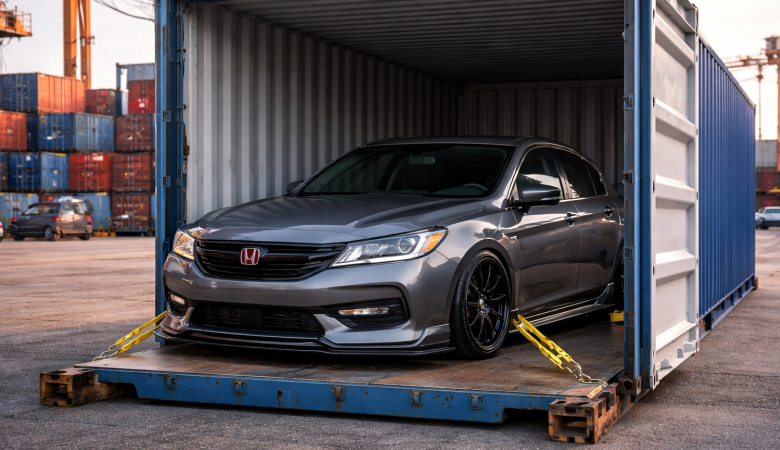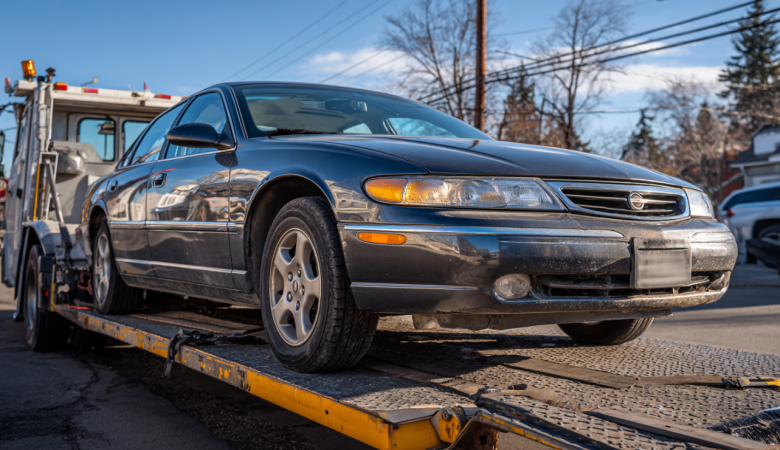When you need to move a vehicle across the United States, whether it’s from a dealership lot, an online auction, or a seller on the other side of the country, you want the process to be simple and secure. Many people turn to cross-country auto shipping because driving long distances isn’t practical, and in many cases, it’s not even possible. While there are reliable and professional carriers that can transport your vehicle without issue, the industry has also attracted its fair share of scams.
The truth is that scams in the domestic vehicle shipping industry can look convincing. Such scams can come in the form of extremely low prices, slick websites, or persuasive phone calls, but the outcome is always the same: wasted money, missed deadlines, and, in some cases, cars that are left stranded. In this guide, we’ll help you recognize these scams, understand how they operate, and protect yourself before you book a shipment.
Why Domestic Shipping Scams Are a Problem
The U.S. is a large country, and many cars must travel hundreds or even thousands of miles before reaching their new owners. This creates demand for cross-country car shipping, and with it, opportunities for dishonest operators.
Customers often need to arrange transport quickly. Maybe the vehicle is using space at a seller’s lot, or perhaps the auction has strict pickup rules. That sense of urgency can lead to quick decisions, which scammers exploit. They count on people not reading contracts carefully, not comparing rates, or simply not knowing what domestic shipping should cost.
Scam #1: The Fake Company
The most straightforward scam is the fake carrier. These operators create websites that look legitimate, advertise impossibly low prices, and then vanish once they receive payment. Sometimes they even copy the names of real businesses to look more convincing.
How to spot it:
- No verified address or working phone line
- Prices far below the market average
- Reviews that look copied and pasted, or no reviews at all
- Pushy sales tactics urging you to book immediately
How to protect yourself: Always verify that the company is registered with the Federal Motor Carrier Safety Administration (FMCSA). Real cross-country car shipping companies have a U.S. DOT number that you can check online.
Scam #2: Bait-and-Switch Pricing
This scam starts with a low quote. Once your car is on the truck, the company calls with “new” charges. They might say your delivery location is harder to reach than expected or that the type of transport you requested is unavailable. Since your vehicle is already loaded, you feel forced to pay.
How to avoid it:
- Get every detail in writing, including pickup and delivery locations, type of transport, and delivery date.
- Ask the company to confirm whether the quote is final or if extra charges might apply.
- Compare multiple offers. If a company offers to ship a car cross-country for far less than others, there’s likely a catch.
Scam #3: Hidden Fees
Hidden fees are another tactic. The company gives you a reasonable quote but adds unexpected charges later, often when it’s time to release your car. They might call them “fuel surcharges” or “administrative costs.”
How to avoid it:
- Ask for a clear breakdown of the shipping cost before you agree.
- Read the contract carefully. Look for vague wording or extra charges buried in fine print.
- Make sure the cost of shipping includes insurance coverage and any standard fees.
Scam #4: Long Delays
Sometimes the scam isn’t about money upfront but about wasting your time. Companies will accept your booking and payment, but never actually schedule a driver. They keep delaying pickup, offering excuses about truck breakdowns or weather. Meanwhile, you’re stuck with storage costs or missed deadlines.
How to avoid it:
- Request a confirmed delivery date in writing.
- Ask how the company handles scheduling during peak seasons when demand is higher.
- Work only with providers that give regular updates about your vehicle’s status.
Scam #5: Insurance Fraud
Moving vehicles over long distances carries some risk. While damage isn’t common, it can happen, and proper coverage is essential. Some dishonest companies claim to provide full coverage but never actually carry a valid policy. If your car arrives with damage, you’re left with the repair bill.
How to avoid it:
- Ask for a copy of the insurance certificate before booking.
- Make sure the policy covers the type of vehicle you’re shipping. If you’re moving a classic car, confirm it is specifically included.
- Don’t rely on vague promises like “you’re fully covered.” Demand specifics.
Scam #6: Title and Document Tricks
Although less common, some operators may ask for unnecessary paperwork, such as original titles or identification, claiming it’s required for domestic shipping, when in most cases, it isn’t. These requests can be used for fraud or to pressure you into paying extra fees.
How to avoid it: Only provide the documents clearly required by law or stated in the contract. If something seems unusual, verify it with a trusted source before handing anything over.
How Scams Affect Customers
Scams don’t just cost money – they cause real logistical problems. If a company takes your deposit and disappears, your car may be stuck for weeks. If they delay shipping, you might face extra storage fees. Even when the car eventually arrives, you’ll have wasted valuable time.
For customers who rely on cross-country auto shipping, trust is everything. A dishonest transporter can create long-term frustration, not just for that shipment but for your confidence in the process going forward.
The Real Cost of Domestic Shipping
So, how much for cross-country vehicle shipping? The answer depends on a range of factors:
- The distance of the route
- The time of year (peak seasons are more expensive)
- The type of transport (open or enclosed trailer)
- The types of vehicles being moved
- Pickup and delivery locations
On average, the cost of shipping a car cross-country falls between $1,200 and $1,800. Anything far below that should raise questions. If a company promises the cheapest way to ship a car cross-country at half the going rate, it’s likely a bait to pull you in.
Choosing the Right Transport
There isn’t a single best way to ship a car cross-country. It depends on your needs:
- Open trailers are the most common and usually the cheapest type of vehicle shipping cross-country. They work well for everyday cars and SUVs.
- Enclosed trailers cost more but provide added protection. When transporting a vehicle that is rare or valuable, this option is safer.
- In some areas, shipping a car by train cross-country is possible, but availability is limited and schedules are less flexible.
Each option has trade-offs. Deciding between them depends on whether your priority is cost, protection, or speed.
Practical Ways to Protect Yourself
Here are some steps that can make all the difference when you arrange car shipping cross-country:
- Research thoroughly – Don’t just take the first quote. Look at reviews, confirm registration, and ask for references before shipping your vehicle.
- Get it in writing – Contracts should include delivery location, type of transport, insurance details, and delivery date.
- Avoid paying in full upfront – Deposits are standard, but most of the cost should be due upon delivery.
- Ask questions – A legitimate provider can explain how to ship a car cross-country in clear terms.
- Stay realistic – If the quote is far below the cross-country car shipping cost averages, assume there’s a reason.
Common Misunderstandings
Remember that while scams are worth being aware of, not every problem is a scam. Sometimes, delays genuinely are caused by bad weather or traffic. Prices can also shift depending on the time of year and route demand. That’s why it’s important to ask questions before booking.
Another misunderstanding is the belief that driving the car yourself is cheaper. Once you add fuel, hotels, meals, and the wear and tear of a long trip, hiring a professional car transporter often ends up being more cost-effective.
Why EasyHaul Value Transparency
At EasyHaul, we’ve seen firsthand how frustrating domestic shipping scams can be. That’s why we make the process straightforward: clear contracts, reliable scheduling, and verified insurance coverage. Whether you’re using cross-country auto shipping services or arranging a shorter move, our goal is to give you a shipment that’s predictable, safe, and free from surprises.
Final Thoughts
Domestic car shipping scams may take different forms: fake companies, hidden fees, false insurance, or long delays, but they all create the same result: stress, wasted money, and wasted time. The good news is that most of these problems are easy to avoid once you know the warning signs.
Always research providers, confirm their licensing, and compare quotes carefully. Remember that the cheapest way to ship a car cross-country is rarely the best. Instead, look for companies that offer realistic prices, written contracts, and clear communication.
Moving a car across the country doesn’t need to be complicated or risky. With the right steps, you can avoid scams, protect your investment, and make sure your vehicle reaches its destination on time.






Leave a Reply
You must be logged in to post a comment.